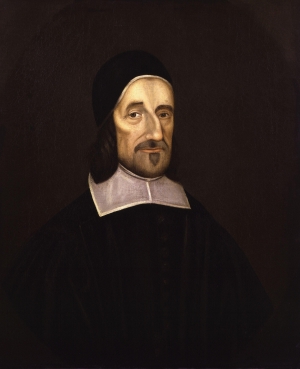Martin has Calvin’s letter to one of the founders of modern rationalism.
unitarianism
The Past is the Future: Classic Unitarianism
WSC student Dan Borvan has posted a paper on John Biddle, a 17th-century English Unitarian. Why “the future”? We hope it’s not the future for Reformed folks, but it’s the present for too many “evangelicals” and likely their future.
The Road To Unitarianism (1)
Earl Morse Wilbur, the foremost historian of Unitarianism, identified the 1531 publication of Michael Servetus’s De Trinitatis Erroribus, which criticized orthodox Trinitarianism, as the start of the movement that developed into contemporary Unitarianism.1 After infiltrating Reformed, Presbyterian, Baptist, and Anglican churches in . . . Continue reading →
The Road To Unitarianism (2)
This is the second of a two-part series. In part 1 we considered the origins of Unitarianism. The Unitarian faction within the Congregational church continued to grow in the early nineteenth century. The apex of the internal movement was the 1819 “Baltimore . . . Continue reading →
Burying The Lead On Baxter
There is a phrase in journalism called “burying the lead” (or, since about 1979, the cloying variant lede). The lead (lede) is the paragraph in which the most important, salient facts are contained. In the old days (c. 1975), the writer was . . . Continue reading →
Christian, Why Do You Sing A Swedenborgian, Social-Gospel, Hymn Written By A Unitarian Minister?
“It Came Upon The Midnight Clear” (now typically titled, “It Came Upon A Midnight Clear”) was first published in 1834. It was written by Edmund Hamilton Sears (1810–76), an Unitarian minister with Swedenborgian convictions. C. Michael Hawn, who teaches sacred music, describes . . . Continue reading →
Heidelcast 187: What Must A Christian Believe? (5): The Holy Trinity
The Heidelcast is back and better than ever, well, as mediocre as ever anyway. As I’m recording this it’s late July and I’m trying to finish the commentary on the Heidelberg Catechism. Something had to give way so I put the Heidelcast . . . Continue reading →




